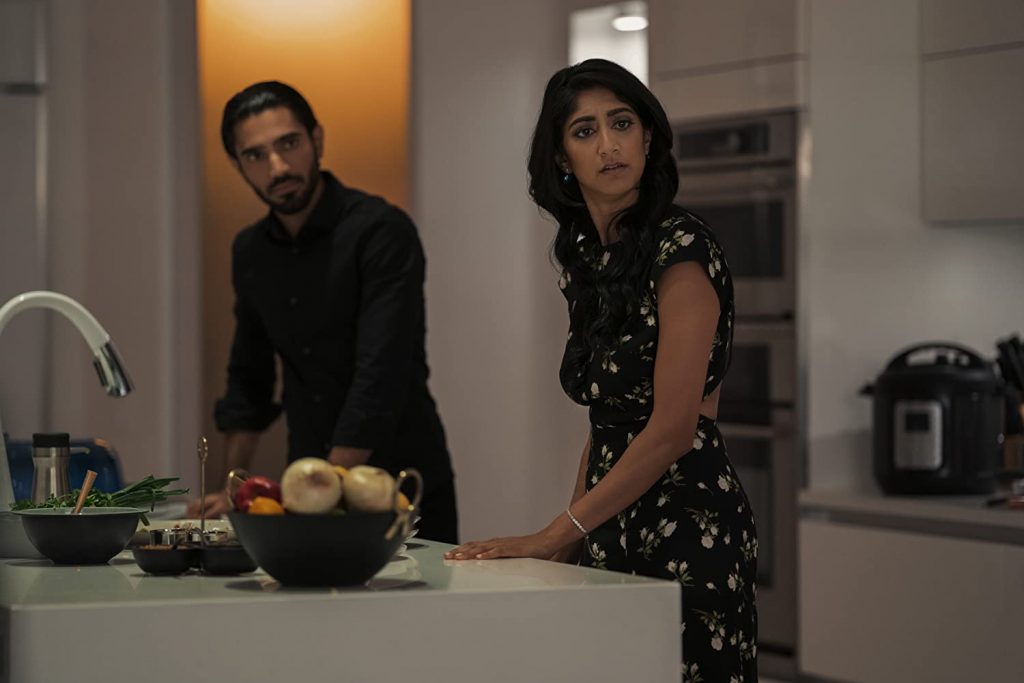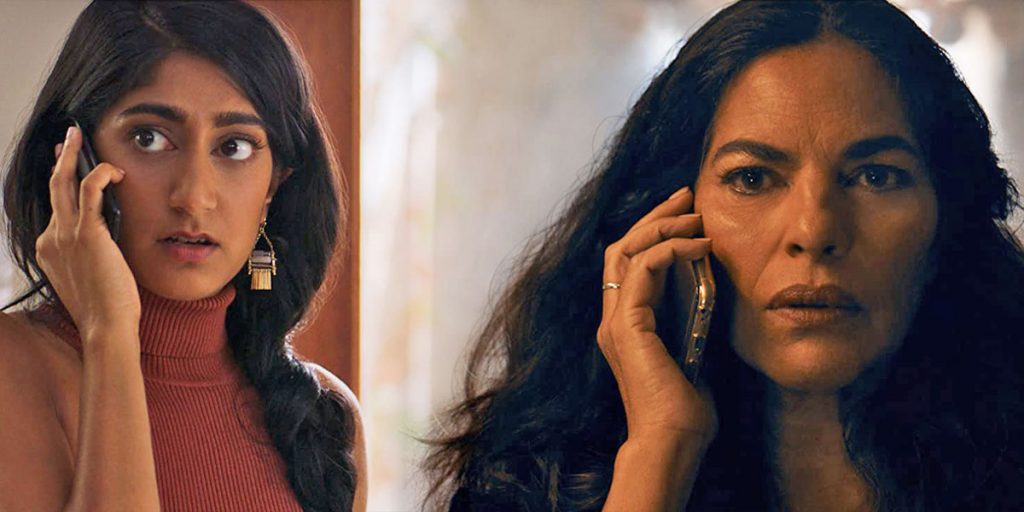Evil Eye will be a disappointment for people expecting a horror film, and squanders what could have been an interesting premise.
What is genre? Is it a method of categorizing art over time by means of incorporating socially-agreed-upon conventions? Or is it just an advertising tool used by production and marketing companies to put butts in seats? Regardless of its true meaning, we’ve gotten to a point where mentioning a genre puts a certain image in your mind: “Spy Thriller” tends to put an image of a dashing special agent in a suit fighting bad guys and using cool gadgets. “Romantic Comedy” elicits images of meet-cutes, and second-act misunderstandings and breakups that ultimately get solved by the end. “Western” evokes the idea of cowboys on the frontier, and Italian directors whose names I cannot hope to pronounce properly. There are certainly conventions attached to each genre, and sometimes these conventions are subverted or ignored, which can lead to unique and exciting film experiences. And then sometimes the “horror” label is thrown onto anything, regardless of weather the film is actually horror or not…
Evil Eye follows Pallavi (Sunita Kharti), a young woman living in Louisiana, and whose mother, back in India, Usha (Sarita Choudhury), is pressuring her to find a husband. When Pallavi begins dating Sandeep (Omar Maskati), Usha becomes wary of her daughter’s new boyfriend, believing that he is a dark reflection of someone from her past.
First things first: despite what the film’s marketing and IMDB page may say, Evil Eye is not a horror movie. It may address topics that are horrifying in and of themselves, but the way the movie is framed and presented is not horrifying. Defining a genre is difficult, and I don’t want to bore you with an academic discussion of genre theory. I do, however, have certain expectations when I see something labeled as “horror.” I expect a chilling and dread-filled atmosphere coloring the film’s tone. I expect striking imagery intended to be frightening or shocking. I expect stakes to be high, and to feel concern for the protagonist(s), knowing the danger that they face. Evil Eye didn’t really meet these criteria: I think it would be better suited for a label like “Drama/Thriller with romantic themes.”

The largest issue with Evil Eye, and one of the main elements preventing it from being a horror film, is that it doesn’t do enough to present stakes throughout most of its runtime. Usha is convinced that something is wrong, but no one believes her; this setup is not inherently bad, but the narrative is largely told from Pallavi’s perspective and, while her mother might be living in a thriller movie, Pallavi is living in Romance/Drama until the final thirty minutes. There is a twist near the end that raises the stakes a bit. I’m not going to say the twist comes out of nowhere (to the film’s credit, they do foreshadow it quite a bit), but it is such an abrupt tonal change that it doesn’t feel like it fits into the rest of the movie.
Another thing with which Evil Eye has to contend is that it addresses a lot of the same themes as another horror film that came out earlier this year: The Invisible Man. Both of them address themes of PTSD and trauma as the result of an abusive romantic partner. I’m not here to tell you which one portrays the trauma more accurately or sensitively; I’m lucky enough to have no first-hand knowledge of abusive relationships, so my perspective on the subject is lacking. What I can tell you is how effectively each of these movies present these themes within their plot. Essentially, while The Invisible Man shows, Evil Eye tells.
A lot of Evil Eye’s narrative is conveyed through people talking on the phone, which, frankly, doesn’t make for a particularly compelling visual component. I suppose it works in the context of the plot (with Pallavi and Usha being in different time zones and different continents, it makes sense that there would be at least a few of these scenes), but there are multiple scenes where full monologues of exposition are told over the phone accompanied by closeup shot/reverse shots of the people on the phone. While there is one flashback sequence to break the monotony, a disproportionate amount of the film’s story is delivered through people talking.
Near the end of the film, there are a string of genuinely good scenes that finally raise the stakes, and are, dare I say it, exciting. Because the ending is good, however, makes it almost more frustrating than the rest of the movie: what should have been the beginning of the second act comes almost at the end of the movie. It makes you realize that, if the filmmakers had focused on certain dynamics and plot points over others, Evil Eye could have actually made for an extremely compelling horror movie. I wish the script could have gotten another draft or two before they started filming, because the final product could have been so much better than it was.
Overall, while it has good moments, Evil Eye feels like it doesn’t know what it wants to be. It has lofty ambitions with its social messaging, but falls flat when compared to its contemporaries (for real, I would highly recommend The Invisible Man over this). I guess it’s nice to see underrepresented groups getting a platform within the Hollywood system, and I do hope this is something we’ll get to see more often in the future. But I think Evil Eye can be skipped.
Evil Eye and Nocturne, both part of the Welcome to the Blumhouse horror anthology series, were released on Amazon Prime Video (US) on Tuesday, October 13, 2020, joining the first two instalments of the series, Black Box and The Lie. The remaining four movies are scheduled to premiere in 2021.

